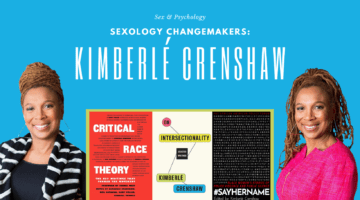Men Who Earn Less Money Than Their Wives Are More Likely To Use Viagra
February 18, 2013 by Justin Lehmiller
Traditional gender roles dictate that men should be the primary breadwinners in heterosexual marriages. Throughout most of modern history, men have almost invariably brought home bigger paychecks than their wives; however, this has changed in recent years. In fact, more than one in five heterosexual married couples in the United States today features a wife who earns more than her husband [1]. As a result, scientists have been wondering what, if any, psychological implications there might be for men who suddenly find themselves out-earned by their wives. A new study published in Personality and Social Psychology Bulletin argues that there may be sexual costs for such men [2]. However, before you go making too much of the findings, you’ll want to take a closer look at the data.
The authors of this study predicted that in relationships where wives earn more than their husbands, the men will feel inadequate because they are not living up to social expectations. The resulting stress and anxiety is theorized to manifest itself in sexual performance problems, namely, erectile dysfunction (ED).
In order to see whether there is anything to this idea, the researchers analyzed existing income and prescription data for couples in Denmark. Analyses were restricted specifically to heterosexual couples in which both spouses were employed and aged 25-49. The main variables of interest were whether a wage discrepancy was present, the direction of that discrepancy (i.e., was the husband or wife the primary breadwinner?), and whether one of the couple members had a prescription for an ED medication, such as Viagra, Cialis, or Levitra.
Results indicated that among married couples, as wage discrepancies increased, so did the likelihood of having a prescription for ED medication. Consistent with the authors’ predictions, prescriptions were highest when the wage discrepancy was such that wives were out-earning their husbands. This same effect was not observed for heterosexual couples who were living together and unmarried, suggesting that there is more pressure to live up to societal gender roles within the context of marriage.
So there you have it. When married men earn less, they feel threatened and suffer from ED, right? Not exactly, and I would urge you not to draw that conclusion just yet, despite all of the media reports about this study suggesting otherwise. First, it’s important to note that in statistical terms, the researchers found only a teeny tiny effect. Specifically, their statistical model explained only about one-tenth of one percent of the variability in ED prescriptions (for those of you with a statistical background, the R-squared value was 0.0016—see Table 2, Model 1). In other words, we’re talking about a miniscule association that, while statistically significant, probably has relatively little real world meaning.
Second, we’re dealing with correlational data and a lot of inferred and proxy variables, which means we do not know whether there is a cause and effect association here or what the results even mean. For instance, just consider that the study only looked at whether the couple had a prescription for ED medication. Does that mean that the man necessarily had erectile dysfunction and, further, that his wife’s high income caused it? No. For one thing, some guys take Viagra recreationally, so we’re just assuming the prescription meant he had ED. Also, we don’t know whether the prescription was for a long-standing issue or if it was related to the income disparity. It could be that guys with prescriptions were just in worse health to begin with (e.g., maybe they had a physical condition that was affecting their sexual health) and, as a result, had more difficulty finding or maintaining a high-paying job. The men in this study were also never asked how they felt about their own or their wife’s salary, so we don’t even know if earning less makes men feel threatened or anxious. Given that this is the central part of the proposed theory and the researchers did not even test it, you should be very hesitant to buy the argument that income disparities make men feel threatened.
Third, there was no control whatsoever for type of career or lifestyle, which means we do not know any of the ways that men who earned less than their wives might have differed from those who earned more than their wives. There could be occupational, personality, family history, or any other number of factors that could be driving the greater ED prescriptions instead of the wage gap.
Finally, it is somewhat odd that the researchers only looked at the data from dual income couples. One might argue that the best test of their hypothesis would be to look at couples in which the wife is employed and the husband is not because that scenario would theoretically be a much greater “threat” to traditional gender roles than a few dollars of difference in salary.
In short, while the results of this study are fascinating and certainly make for a provocative headline, you’ll want to take these findings with an extra large grain of salt.
Want to learn more about The Psychology of Human Sexuality? Click here for a complete list of articles or like the Facebook page to get articles delivered to your newsfeed.
[1] Fry, R., & Cohn, D. (2010). New economics of marriage: The rise of wives. Pew Research Center. Retrieved from: http://www.pewsocialtrends.org/2010/01/19/women-men-and-the-new-economics-of-marriage/
[2] Pierce, L., Dahl, M. S., & Nielsen, J. (2013). In sickness and in wealth: Psychological and sexual costs of income comparison in marriage. Personality and Social Psychology Bulletin, 39, 359-374.
Image Source: 123rf.com
You Might Also Like:

Dr. Justin Lehmiller
Founder & Owner of Sex and PsychologyDr. Justin Lehmiller is a social psychologist and Research Fellow at The Kinsey Institute. He runs the Sex and Psychology blog and podcast and is author of the popular book Tell Me What You Want. Dr. Lehmiller is an award-winning educator, and a prolific researcher who has published more than 50 academic works.
Read full bio >


